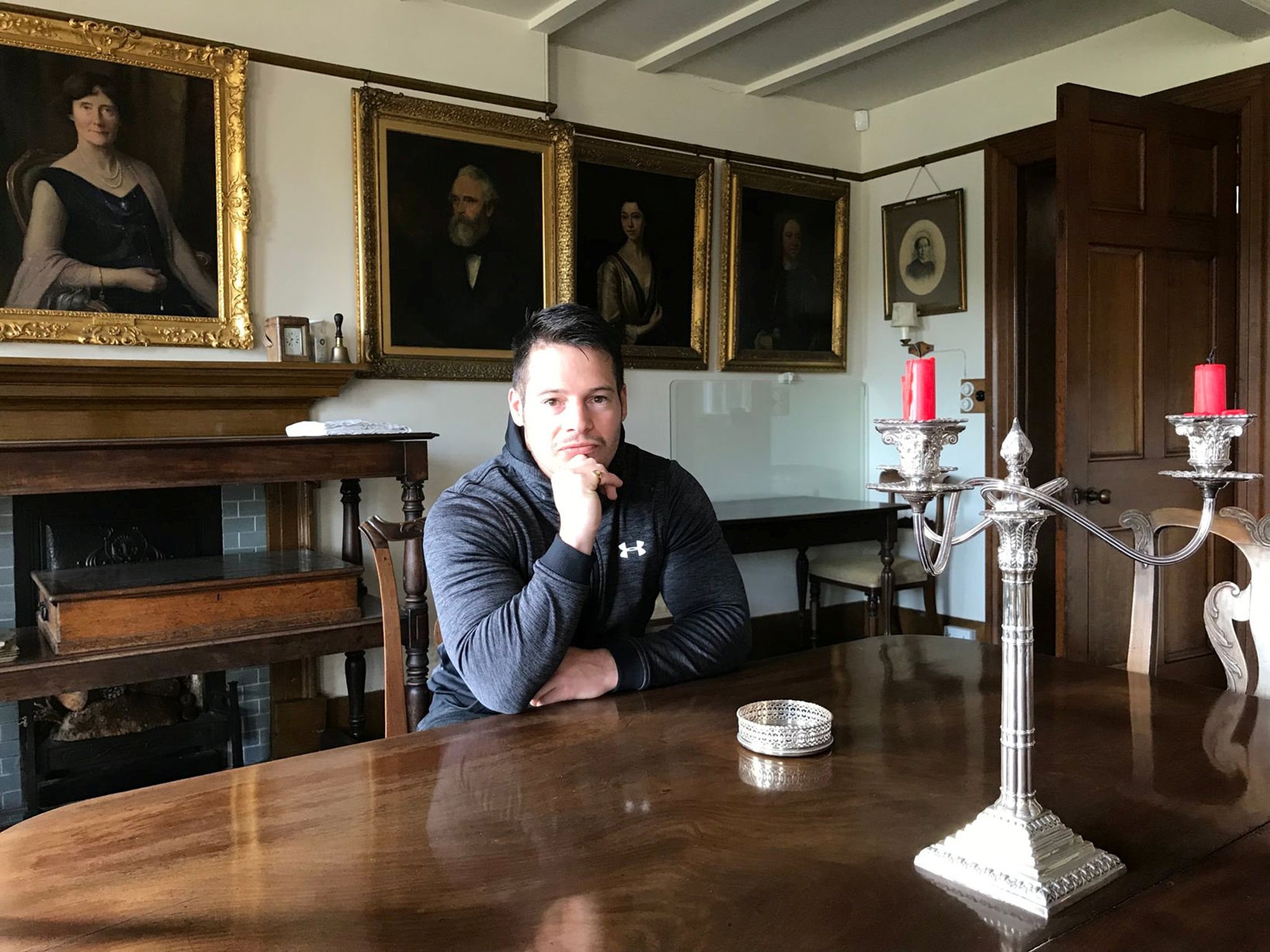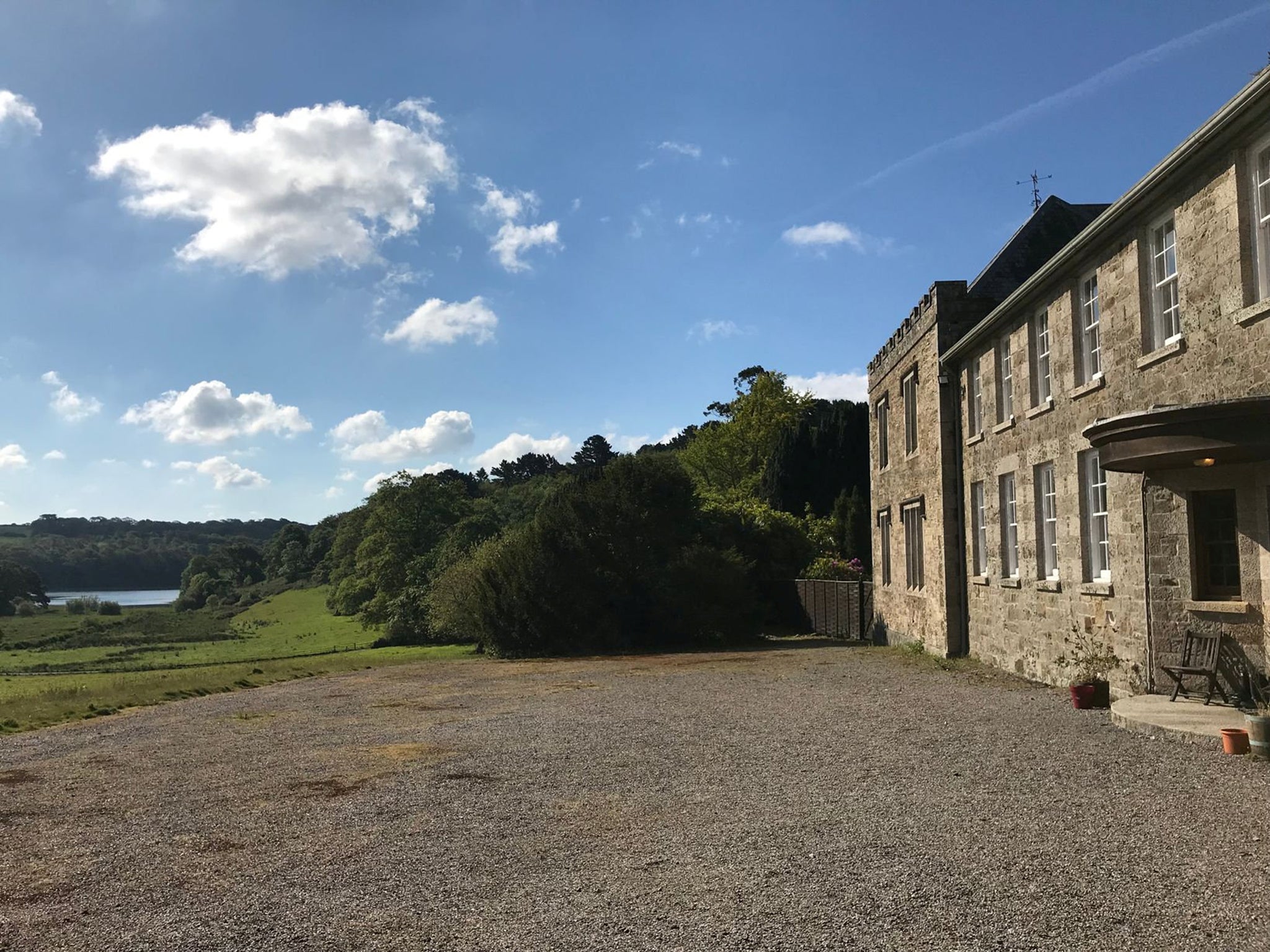Care worker inherits £50m stately home after DNA test proves he is illegitimate son of aristocratic owner
‘People say I’m lucky but I would trade anything to be able to go back and for Charles to know I was his son’
Your support helps us to tell the story
From reproductive rights to climate change to Big Tech, The Independent is on the ground when the story is developing. Whether it's investigating the financials of Elon Musk's pro-Trump PAC or producing our latest documentary, 'The A Word', which shines a light on the American women fighting for reproductive rights, we know how important it is to parse out the facts from the messaging.
At such a critical moment in US history, we need reporters on the ground. Your donation allows us to keep sending journalists to speak to both sides of the story.
The Independent is trusted by Americans across the entire political spectrum. And unlike many other quality news outlets, we choose not to lock Americans out of our reporting and analysis with paywalls. We believe quality journalism should be available to everyone, paid for by those who can afford it.
Your support makes all the difference.A care worker has inherited one of Britain’s finest country estates after a DNA test proved him to be the illegitimate son of its late aristocratic owner.
Jordan Adlard Rogers, 31, moved into the 1,536-acre National Trust Penrose Estate in Cornwall, estimated to be worth £50m, after his father died aged 62.
Mr Rogers said he had entertained suspicions Charles Rogers was his real father since the age of eight, but a DNA test was only carried out after his father’s death.
His father had offered to undergo a DNA test when he was younger, but it ended up not going ahead.
When Mr Rogers was 18 he asked his father to undergo the test, but was rebuffed.
Mr Rogers said: “He offered to do a DNA test when I was younger but it didn’t happen, and then when I was 18 I knocked on his door and asked if I could have the test and he told me to do it through the solicitors. I was 18 so had other priorities at the time.
“I wrote more letters in my twenties but never got a reply, then three years ago I got in contact with power of attorney Philip Care.
“Philip said Charles didn’t want to do the test so I wrote one final letter with a DNA test kit enclosed and that was when Philip rang and told me Charles was dead.”
Mr Rogers said he had to deal with some obstructive family members, but was finally able to complete the test and Charles was confirmed as his father.
With his father’s mother and brother also having passed away, Mr Rogers was left as heir to the estate, which sits between Helston and Porthleven.
He added: “I’m now starting to get my feet under the table here. People say I’m lucky but I would trade anything to be able to go back and for Charles to know I was his son. Maybe then he might have taken a different path.
“I don’t need to work any more so want to set up a charity and help the Porthleven and Helston communities.
“I’ve been at the point of worrying about the next bill and have had a tough start in life but now I’m here I want to help people.
“I’m not going to forget where I’ve come from.”

An inquest last week heard how Mr Rogers’ father had struggled with drug abuse for many years and died of an overdose in his car outside his Grade-II listed farmhouse on the historic estate.
The inquest, held in Truro, heard how there were no suspicious circumstances and that he had overdosed on a prescription drug.
He was reportedly malnourished, neglected personal hygiene and rarely changed his clothes in the months leading up to his death.
Instead of living in his lavish home, he was sleeping in his car.
The coroner was told the life tenant of the estate receives an income from a trust, and Mr Rogers’ father was given a “substantial” cash allowance ranging from £300 to £1,000 a week.
Mr Rogers, who bears a striking resemblance to his father, said he decided to speak out to give a fuller picture of his father’s life before he died.
He said: “I haven’t been here long and don’t know all the ins and outs but have been able to piece some of the puzzle together.
“Charles never actually lived in the estate. He lived in one of the estate’s farmhouses as his mum lived here so he never got the chance to inherit it.
“They died two weeks apart.
“It’d got to the point when he gave up on himself and was living in his car instead of his house as it was such a mess.
“The Rogers family gave the National Trust 46 cottages and a couple of farms and now the Rogers Family Trust produces income for the life tenant.”

Mr Rogers, who has recently had a son with his partner Katie, said he has learned of a number of factors that he believes resulted in his father’s descent into drug addiction.
“There was always a pressure of him trying to match expectation,” he added. “His brother was a RAF pilot and his dad a lieutenant commander in the Royal Navy so he had big shoes to fill. He was under huge pressure taking it on, but he was different and a free spirit.
“Charles served in the Army in Northern Ireland and I think this affected him greatly along with the death of his brother Nigel from cancer who he was very close to.”
The estate makes money from investments in stocks and shares and renting a number of parcels of land to local farmers.
Mr Rogers’ plans also extend to holding a charity garden party in the grounds of his new home.
Additional reporting by SWNS

Join our commenting forum
Join thought-provoking conversations, follow other Independent readers and see their replies
Comments